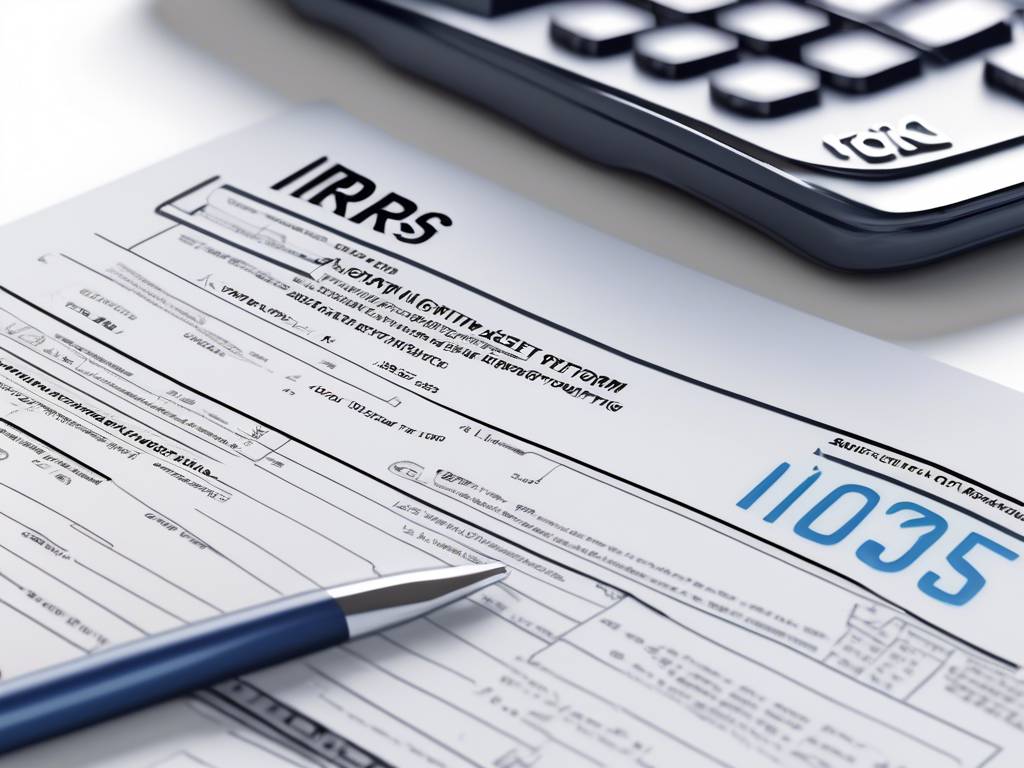Understanding the IRS Draft Form 1099-DA for Digital Asset Transactions 📝
If you are a crypto enthusiast or investor, you might be familiar with the recent developments in tax reporting for digital assets. The United States Internal Revenue Service (IRS) has introduced a new draft form, Form 1099-DA, focused on reporting income derived from digital asset transactions. Here is what you need to know:
Draft Form Details and Implementation 📋
- The draft form, titled “Digital Asset Proceeds from Broker Transactions,” is set to be implemented in 2025 for reporting purposes in 2026.
- Brokers, including various entities like kiosk operators, digital asset payment processors, and wallet providers, will be responsible for preparing Form 1099-DA for customers engaged in selling or exchanging digital assets.
- Copies of the form will be sent to both customers and the IRS to ensure accurate reporting.
Required Information and Regulations 📝
- The draft form mandates the inclusion of token codes, wallet addresses, and blockchain transaction locations for accurate reporting.
- A rule proposed in August 2023 states that cryptocurrencies, NFTs, and stablecoins will be subject to reporting, enhancing the IRS’s ability to identify taxpayers involved in digital asset transactions.
- Upon the announcement of the proposed reporting requirements, the crypto community had mixed reactions, with some expressing concerns about privacy and financial surveillance.
Concerns Raised by Tax Experts 🤔
- Tax experts have raised concerns about the challenges of reporting decentralized finance transactions and the increased administrative burden on brokers processing a large volume of transactions.
- The accurate determination of cost basis for digital asset transfers and distinguishing between self-transfers and taxable transfers remain challenging aspects of the new reporting rule.
- Taxpayers who previously underreported their crypto income may face scrutiny when reporting their taxes in 2025.
Global Trends in Cryptocurrency Taxation 🌍
- Countries worldwide are recognizing the need to tax cryptocurrency holdings as the digital currency market expands.
- Brazil has introduced legislation imposing taxes on profits from cryptocurrencies held overseas by Brazilian nationals.
- India enforces stiff taxes on crypto transactions, including a 30% tax on profits and a 1% Tax Deducted at Source (TDS) on all transactions.
- The UK national taxing authority has urged crypto users to disclose any unpaid taxes to avoid fines.
Hot Take: Navigating the Changing Landscape of Crypto Taxation in 2025 🚀
As a crypto enthusiast, staying informed about tax regulations and reporting requirements is crucial in navigating the evolving landscape of digital asset taxation. Understanding the implications of the IRS draft Form 1099-DA and global trends in cryptocurrency taxation can help you make informed decisions and ensure compliance with tax authorities. Keep an eye on future updates and developments in the taxation of digital assets to manage your investments effectively.
*Sources:*
– [IRS Draft Form 1099-DA](https://www.irs.gov/pub/irs-dft/f1099da–dft.pdf)
– [Ledgible crypto Twitter](https://twitter.com/Ledgiblecrypto/status/1781330159666180096)





 By
By
 By
By
 By
By
 By
By
